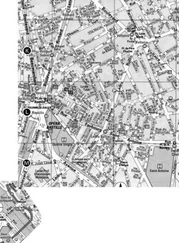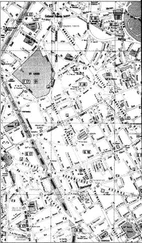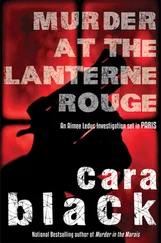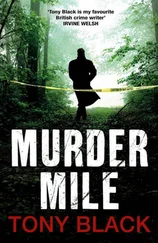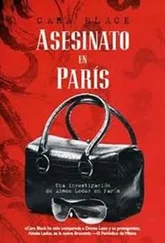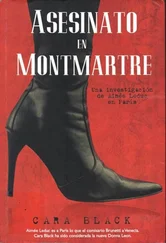His head bobbed, his hands and mouth too busy with pins and stitching her into the gown.
“You have a new career, Aimée,” René grinned. “But if you’re serious you have to stop eating and start smoking again.”
Not a bad idea, she thought. Did chocolate count?
She kept her eye on Idrissa as she catwalked. The rollerblader seemed busy with clients, and she was glad for Michel.
Her last outfit was a miniskirt of fine silver metal mesh, reminiscent of a knight’s chain mail, along with an off-the-shoulder gauze lace top. Michel draped the lace around her lizard tattoo.
“Parfait!” said the Goth designer, admiring her back. “The Marquesan lizard symbolizes change … the perfect accessory.”
Was her life going to change, Aimée wondered, as she cat-walked past the palm screen.
Annika, Michel’s premier model, had revived and now appeared in his variation of the traditional last outfit, the wedding gown. An off-white creation of pearlescent beads embroidered an old-fashioned lace twenties style tunic with a train of tiny ivory ostrich feathers draping down her back. Michel’s low bow met with resounding applause.
Aimée gestured to Idrissa, indicating a mirrored corridor outside the salon’s door.
“Let’s finish our conversation.”
Idrissa’s eyes were large with panic, but she set the kora in its case and stood up.
“Out here, away from the crowd,” she said.
After the hot lights and buzz of the collection, Aimée welcomed the stale air and creaking wood floor. She leaned against the wall, about the same height as Idrissa, in the crocodile pumps. Their reflections, Idrissa in her bright African head scarf and Aimée in the chain-metal-mesh mini, kaleidoscoped in the grainy half-silvered mirrors.
“Talk to me, Idrissa, tell me why you’re in danger. I won’t hurt you.”
Idrissa’s eyes filled with tears. “You killed Ousmane!”
Aimée blinked in surprise. “What gives you that idea?”
“Because you wouldn’t stop looking for me,” Idrissa said.
Talk about guilt transference. “Listen, Idrissa, Christian hired me to find out about the ‘ghosts,’ but I discovered that his father didn’t commit suicide,” Aimée said, with effort keeping her voice patient. “His father was killed. You’d worked with Romain but you wouldn’t talk with me. You ran away. I tried to call you but I couldn’t find you. Then I went to Club Exe. No one had seen you. And in the square beyond, a titi kicked a soccer ball into a garbage bag by mistake and there was poor Ousmane.”
Aimée looked down. The image welled up again, the ebony skin and dried blood on his neck.
“Ousmane was superstitious,” Idrissa said. “He listened to the marabout.”
From the salon, Aimée heard Michel’s laughter. Voices congratulating him.
“ Tiens , did something happen in Senegal? Something to do with Romain Figeac and terrorists?”
“I don’t know what you mean,” Idrissa said, but her involuntary shudder gave her away.
“You’re a bad liar, Idrissa,” Aimée said. “I should know, I’m a good one.”
Idrissa scanned the mirrored corridor. Her lips worked but no sound came out.
“Of course, you’re scared,” Aimée said. “Stay at my place, I’ll help you. Please trust me.”
“My father’s a doctor in Dakar.” She motioned Aimée to move farther down the corridor, away from the voices. “He treated Monsieur Figeac when they summered there.” The words came slowly, as if she weighed each one. “I knew he was moody, obsessive. He asked me to help him. His memoirs, he said. But he would ask me to go to the market and the docks with him, to translate the gossip in Wolof. He was looking for someone, I knew, but he never told me straight. Some Frenchman.”
She took a deep breath. Then another. “When I transferred here to the Sorbonne, my music wasn’t enough. I needed more work. So Monsieur Figeac hired me to transcribe his memoirs. He’d written most of it, you see, in longhand. With Waterman’s sea blue ink. Like always. The last part he’d spoken on tape. I hadn’t yet finished everything.”
Aimée thought back to the classic red Olivetti on his desk.
“But he had a typewriter.”
“Never used it.”
“Why?”
“It was some famous writer’s—Hemingway’s, I think. The story I heard was that he’d found it at an auction, called it his good-luck charm,” Idrissa said. “But he wouldn’t have the audacity to use it, he said. And he hated computers.”
That fit with the .25 he’d been given by Hemingway, kept framed under glass.
“So, did he find this Frenchman?”
A pause. Idrissa looked around. “A woman came the day Figeac died.” She hesitated. “Then a man. It was right before.”
Jutta? But it couldn’t be Jutta, she’d been released from prison after Romain Figeac was killed.
“What did this woman look like?”
Silence.
Then, “She wore dark glasses,” Idrissa said. “A scarf around her head, a long coat. Seemed bizarre in such heat.”
Her mother? Idrissa’s words reverberated like a tuning fork in Aimée’s head. Her mother alive?
“What did she sound like?” Aimée was surprised at her own question. Of all the things she wanted to know, why had she asked this?
“Never spoke. At least I didn’t hear her.”
“How long did you see her?”
“A few minutes. I left. I never saw Figeac alive again.”
Her mother Romain Figeac’s killer? … But why? She didn’t know whether to hope this stranger was her mother or to fear it.
“But … wait … you said there was a man.”
“Outside, coming up the stairs,” Idrissa said. “A Frenchman. He entered Figeac’s apartment. I was rounding the stairs but he saw me.”
“Saw you?” Aimée asked but didn’t wait for an answer. Now she put it together. “So that’s why you think he’s trying to kill you?”
Idrissa gave a small nod. “He swore at me in Wolof.” Fear pooled in her eyes.
It made sense. Idrissa was terrified.
“But why didn’t you tell Christian?”
“I’d gone to Fontainebleau for my business seminar class,” Idrissa said. “Four days later, when I returned, Christian told me he’d found his father dead. Suicide. Showed me the note. The typewritten note. He said it happened the afternoon I left. And I suspected. But Christian had cremated his father already. He had a horror of the Press after his mother’s suicide. Then we heard the noises and I saw the death fetish.”
“The yellow feathers?”
Idrissa nodded. “But Christian was taking uppers and downers, he made no sense. I kept trying to question him. But where his father was concerned, he saw nothing. Crazy as he was, his father loved him.”
“Why was Ousmane killed?”
“He wasn’t well but he was hiding me.” She blinked back tears. “Maybe a warning … I don’t know. Then one day, when I went back, the man was sitting in the café opposite. So I ran.”
“Can you describe him?” asked Aimée, keeping her hand steady with effort.
Idrissa went rigid.
Behind them in the salon, people milled and conversed.
“What’s wrong?”
Idrissa was backing away from her.
Aimée half turned and saw a crowd coming toward the door into the corridor. Idrissa began to run.
Who had she seen?
“Wait!”
Aimée ran, too, past the mirrors distorting their movements. But she was in heels and Idrissa wasn’t. Idrissa cornered the hall and Aimée had just about grabbed her when her heel caught in a crack in the parquet. She flew, landing in the Goth designer’s arms, which were full of his costumes.
“I’m sorry,” she said, scrambling up.
Читать дальше


